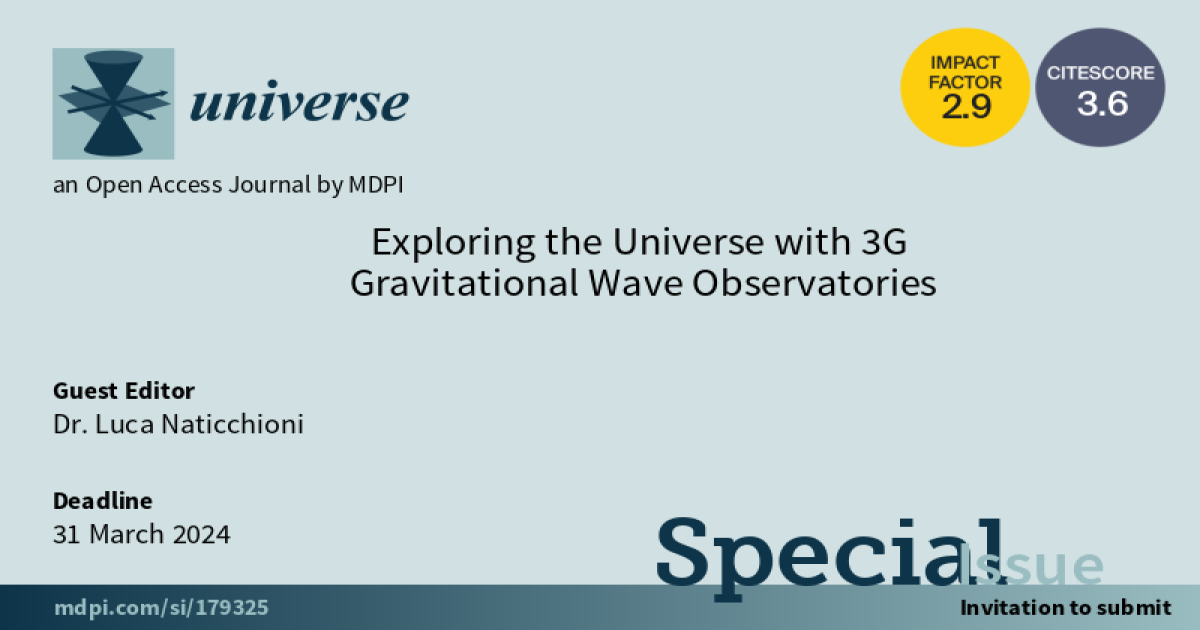Exploring the Universe with 3G Gravitational Wave Observatories
A special issue of Universe (ISSN 2218-1997). This special issue belongs to the section "Gravitation".
Deadline for manuscript submissions: closed (31 March 2024) | Viewed by 97

Special Issue Editor
Special Issue Information
Dear Colleagues,
The first detections of Gravitational Waves (GWs) achieved by the global network of advanced ground-based interferometric detectors during their first three observation runs paved the way for the standard use of GWs as messengers within astrophysics. The kilonova associated with the neutron star merger GW170817 demonstrated the enormous impact of multi-messenger astronomy, revealing the potential of the planned 3G network of GW observatories. They will be extremely complex machines, capable of extending the detection horizon to high redshift, observing binary black hole mergers across the entire evolution of our universe, investigating the primeval cosmos, and detecting the stochastic background of cosmological origin. With hundreds of thousands expected detections per year, 3G observatories will provide exceptional outcomes in astrophysics and fundamental physics, as well as in the required frontier technologies under development for their interferometric detectors.
The aim of this Special Issue is to provide an overview of the future ground-based observatories like the Einstein Telescope and Cosmic Explorer, facilitating advances surrounding their core technologies and scientific targets.
Dr. Luca Naticchioni
Guest Editor
Manuscript Submission Information
Manuscripts should be submitted online at www.mdpi.com by registering and logging in to this website. Once you are registered, click here to go to the submission form. Manuscripts can be submitted until the deadline. All submissions that pass pre-check are peer-reviewed. Accepted papers will be published continuously in the journal (as soon as accepted) and will be listed together on the special issue website. Research articles, review articles as well as short communications are invited. For planned papers, a title and short abstract (about 100 words) can be sent to the Editorial Office for announcement on this website.
Submitted manuscripts should not have been published previously, nor be under consideration for publication elsewhere (except conference proceedings papers). All manuscripts are thoroughly refereed through a single-blind peer-review process. A guide for authors and other relevant information for submission of manuscripts is available on the Instructions for Authors page. Universe is an international peer-reviewed open access monthly journal published by MDPI.
Please visit the Instructions for Authors page before submitting a manuscript. Submitted papers should be well formatted and use good English. Authors may use MDPI's English editing service prior to publication or during author revisions.





